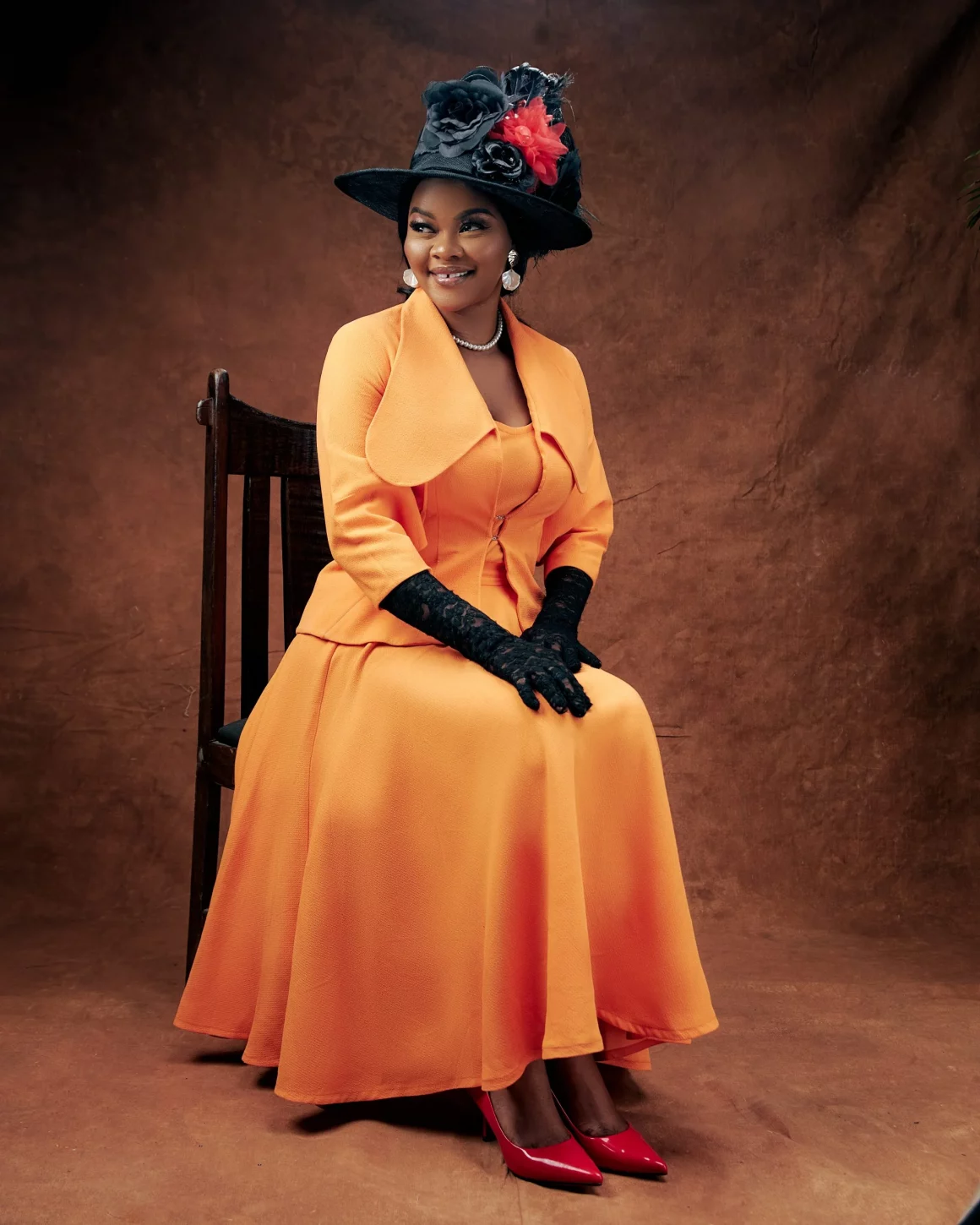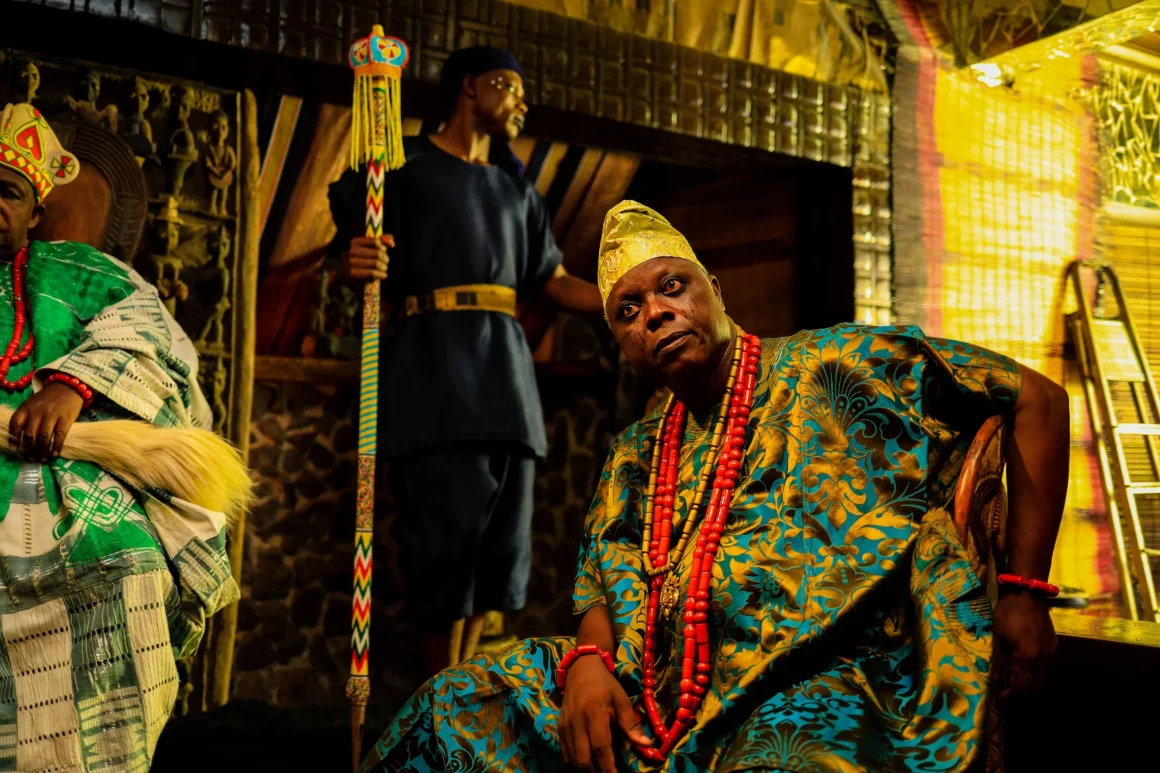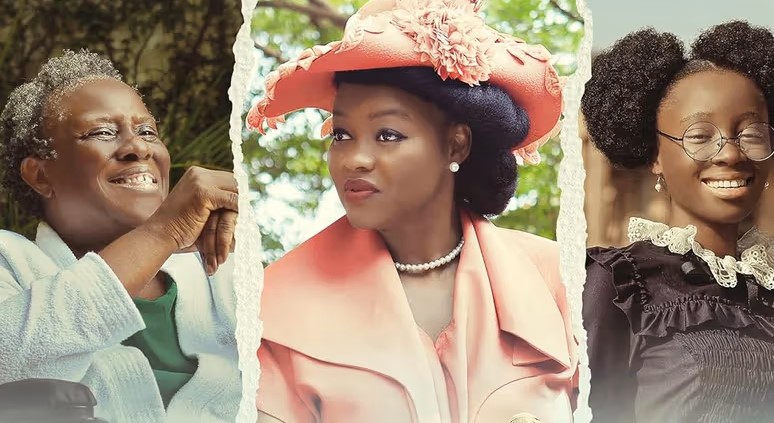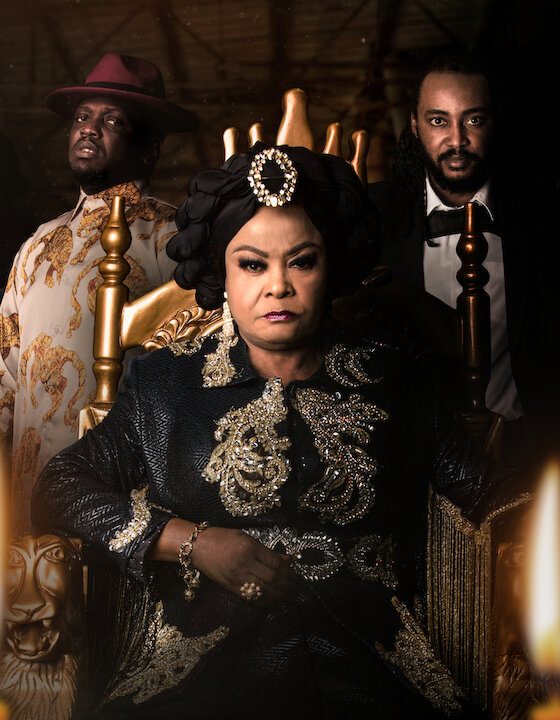From ‘Collision Course’ to ‘Man of God’ and now, ‘Funmilayo Ransome-Kuti’, Bolanle Austen-Peters has continued to prove herself as one of Nollywood’s finest directors. The lawyer-turned-filmmaker released her latest film, ‘Funmilayo Ransome-Kuti’, first at cinemas on the 17th of May, and after a few weeks in the theatres, it was released to Prime Video.
The movie is a powerful and poignant tribute to one of Nigeria’s most formidable female activists, Mrs Funmilayo Ransome-Kuti MON.
With a history of often sidelining the contributions of women to Nigeria’s independence and other female-led activism in favour of their male counterparts, this film stands out as a necessary and overdue reclamation of history.
Plot Summary
The film follows the life of the enigmatic Funmilayo Ransome-Kuti, a pioneering feminist and activist whose impact on Nigeria’s socio-political landscape is immeasurable. The movie opens with the scene of the famed military raid of Fela Anikulapo’s house in 1977, in which Funmilayo was thrown down a two-storey building. While in the hospital, a French journalist interviews her, and she narrates the events that unfold in this film.
We see how her father played a major role in shaping the woman she became. Heavily influenced by her father’s stories and teachings about fighting for what you believe in, Funmilayo was destined to be a change-maker. As opposed to learning a trade, he encouraged her desire to further her studies and got her to become the first girl to attend a grammar school in Abeokuta, an all-boys school, for that matter. It was there that she met and fell in love with her husband, Israel Ransome-Kuti.



After her education in England, she returned to become an educator, encouraging parents to allow their children to get educated. After witnessing the injustice being meted out to women in the market with heavy taxes levied on them by the Colonial government through the Alake, Funmilayo took it upon herself to end it, from attempts to persuade the divisional colonial officer to her unfruitful meeting with the Alake and his chieftain, to forming the Abeokuta Ladies Club with several other women of high standing in the society.
Through the club, women were empowered through some education and vocational training. However, Funmilayo wasn’t satisfied as the Alake, through the ‘Parakoyi’, continued to harass the women and increase their taxes.



She further resolved to bridge the gap between educated and uneducated women by forming the Women’s Union of Abeokuta, which saw women from all walks of life rally and unite. As the harassment worsened, the women united in protests led by Funmilayo.
Her resilience shone through even when she was imprisoned. The women stood solidly behind her and fought for their rights. Soon enough, women from surrounding cities joined in, and they overpowered the palace guards, forcing the Alake and his chiefs to flee.
Alas! They had victory. A new native authority council was then formed, and four of the women from the union, including Mrs Funmilayo, were inaugurated into the council.
Our Take!
In this movie, Austen-Peters masterfully captures the essence of Funmilayo’s spirit, painting a vivid portrait of her resilience, intellect, and unyielding commitment to justice, even in the face of persecution.
We also love how she portrays the male characters in Funmilayo’s life and shines a spotlight on their influences. This shows how far a woman can go if she is supported rather than put down.
The use of flashbacks and narration is also an excellent choice, and Joke Silva’s narration was perfectly comprehensive and compelling.
The switch from the young Funmilayo’s narration to that of middle-aged Funmi, played by Kehinde Bankole, and then back to the older Funmi, played by Joke Silva, was as seamless as it could be.
The entire cast, simply exceptional, delivers outstanding performances, with the lead actress in the person of Kehinde Bankole, embodying Funmilayo with remarkable depth and nuance. It was evident throughout the movie that she gradually came into the role as the movie progressed. Her portrayal brings to life the complexities of a woman who was not only a leader but also a mother and a symbol of resistance. Her dedication to the role and the film was even more apparent and you could tell, especially in certain scenes where it was obvious she had lost her voice and supporting characters had to carry some of the monologues and songs to aid her. But all of it further enhanced her performance and the overall believability of the film.
Other actors who were phenomenal in their roles were Bukky Ogunmote, Joke Silva, Omawunmi Dada, Dele Odule, Adebayo Salami, Jide Kosoko Keppy Ekpeyong, and a host of others.
Every actor gave it their all, adding layers of authenticity and emotional weight to the story.
We can boldly say that this movie had one of the best use of a crowd and perhaps the best acting from a crowd we have ever seen in a Nollywood movie. How Mrs Austen-Peters managed to achieve that should be studied by other filmmakers.
Every single person in the crowd scenes was engrossed in their roles regardless of how little, and it drew the audience further in.
The songs raisers and the songs give it some theatrical outlook, which we also thoroughly enjoyed.
The movie’s entire production, from cinematography to set design to costumes, makeup, props, music, etc., was top-notch!
The historical accuracy of the set design and props can hardly be faulted.
The only thing we’d probably arched an eyebrow at was that Ibrahim Suleiman, in the role of Israel Ransome-Kuti, should have been made to look a bit older as the movie progressed. It was apparent more attention was paid to Kehinde as the focal character.
Still, the movie was just so good that our arched eyebrows fell back into place almost as soon as they rose.
For years, all that was taught in our schools about Mrs Funmilayo Ransome-Kuti was that she was the first woman to drive a car. She was so much more than that. She fought for women’s rights everywhere, including the right of women in the north to vote. Her activism inspired her son, Fela Anikulapo, so much that he became a revolutionary himself through music. The film provides a more balanced and inclusive historical narrative. It is vital for such stories to be told, as they offer a more comprehensive understanding of history and inspire future generations by showcasing diverse role models.













